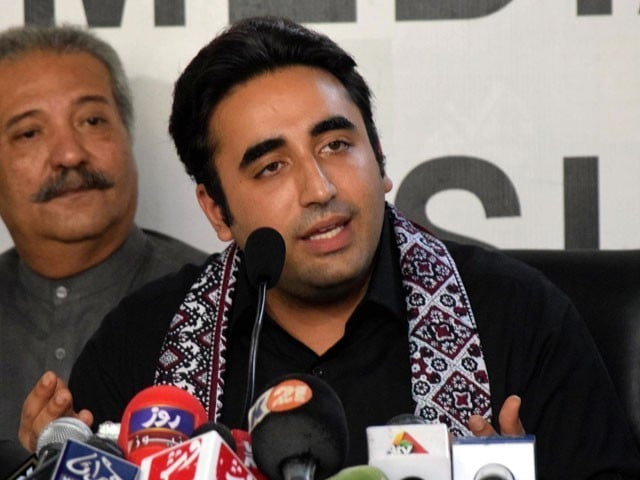Govt-IMF deal struck industrial growth: Bilawal
Says thousands of workers have been left jobless due to decline in industrial production

PPP Chairman Bilawal Bhutto Zardari has said the bailout deal between the federal government and the International Monetary Fund (IMF) has adversely affected industrial growth in the country and left thousands of labourers jobless.
“The federal government-IMF deal has badly affected our industrial growth,” the PPP chief said on Saturday while addressing a ceremony held at the Sindh Chief Minister House to distribute the Benazir Mazdur Card among labourers on the occasion of the Labour Day.
“When industrial growth stops employment opportunities shrink. Today thousands of workers have been rendered jobless as industrial production has declined,” he added.
Bilawal said the PPP led Sindh government is observing the Labour Day by launching the Benazir Mazdoor Card under which workers will be able to avail all the necessary benefits and facilities such as education, health, marriage grants, financial assistance, scholarships and even pensions.
“It was Shaheed Zulfikar Ali Bhutto who launched labour-friendly policies under which the workers had been given shares. There were trade unions to protect their [workers] rights but when military ruler General Zia came into power he snatched all the rights of the workers.”
Bilawal said PPP’s slain chairperson Benazir Bhutto during her first tenure reversed all the anti-workers’ policies of the Zia era and created more employment opportunities for them.
Read more: Bilawal, Maryam in battle of words as PPP bags NA-249
“The PPP government during the tenure of President Asif Ali Zardari strengthened the agriculture and industrial sectors. We issued the Benazir Income Support Card to poor women so that they could meet their needs,” he added.
The PPP chief also urged the federal government to direct the Federal Board of Revenue (FBR) to stop collection of the Workers Welfare Fund immediately and to transfer the funds collected so far to the Sindh government.
The PPP chairman congratulated the provincial government for launching the card and directed Sindh Chief Minister Murad Ali Shah to enhance the benefits of the card. Provincial ministers, industrialists as well as labour leaders and workers attended the ceremony.
The IMF on March 25 approved four pending reviews of Pakistan’s economy and the release of the next loan tranche of around $500 million, reviving the $6 billion programme after it remained derailed for over a year.
In order to put the programme back on track, Prime Minister Imran Khan took some tough political decisions despite political uncertainty.
These measures, which were also the prior conditions, included significantly increasing electricity prices, imposition of Rs140 billion taxes and agreeing to an unparalleled autonomy for the central bank.
The IMF Executive Board endorsed the staff-level agreement, reached between the government of Pakistan and the IMF team in February, a top government functionary told The Express Tribune.
The board’s approval paved the way for the release of $500 million third loan tranche. Out of the $6 billion, the IMF has already disbursed $1.45 billion in two tranches, bringing the total disbursements to $2 billion.
Sources said that it will be very challenging to keep the reinstated programme on track, particularly due to heavy taxation of over Rs700 billion and cut in expenditures in the next budget.
Pakistan’s economy started gradually recovering from the aftermath of the Covid-19 but it was again struck by the third wave of the deadly pandemic. The central bank last week upward revised the growth forecast to 3% for this fiscal year.


















COMMENTS
Comments are moderated and generally will be posted if they are on-topic and not abusive.
For more information, please see our Comments FAQ